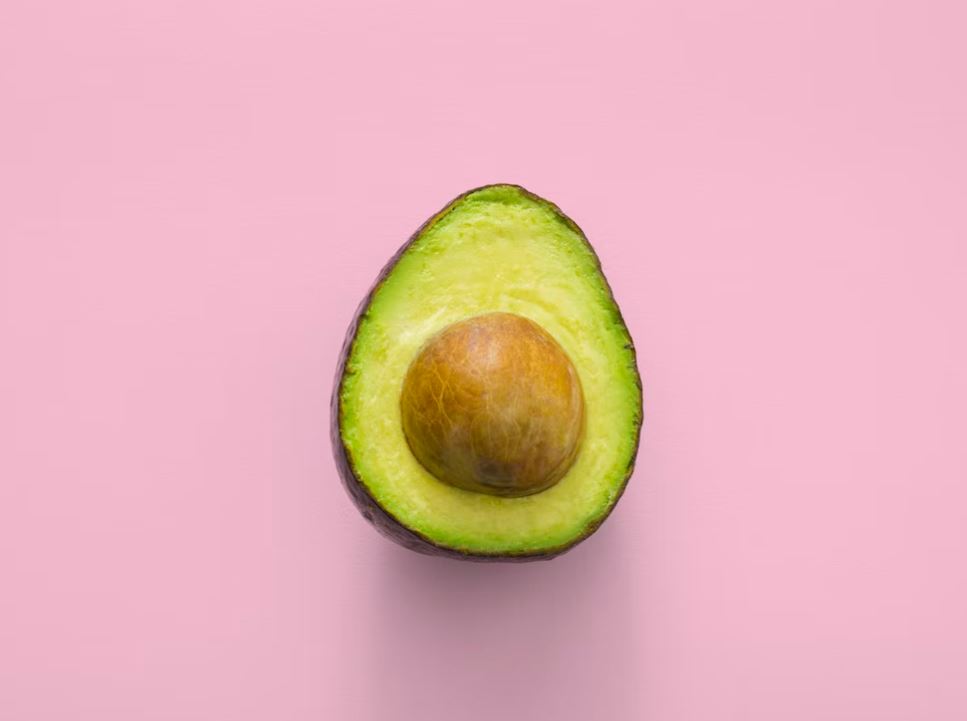
Soy milk may increase the risk of breast cancer. Low-fat foods are healthier than high-fat foods. Vegetarians don’t get enough protein.
All of the above remain misconceptions about nutrition, forming the myth of what we should and should not eat.
To clarify, The New York Times asked 10 of America’s top nutrition experts a simple question: What are the top nutritional myths you’d like to debunk? Experts answer.
Myth #1: Fresh fruits and vegetables are always healthier than canned, frozen, or dried varieties.
Despite the longstanding belief that “fresh is best,” research has shown that frozen, canned, and dried fruits and vegetables can be just as nutritious as their fresh counterparts.
“Buying them also saves money, since fruits and vegetables are always available at home,” said Sarah Bleich, outgoing director of the USDA’s Division of Food Security and Health Equity and professor of public health at the T. H. Chan School. Harvard.
But she cautions: Some canned, frozen, and dried foods contain hidden ingredients like added sugars, saturated fat, and sodium, so be sure to read nutrition labels and look for foods that minimize these ingredients.
Myth #2: All fats are bad.

When studies published in the late 1940s found a link between a high-fat diet and high cholesterol, experts thought that if you reduced the amount of total fat in your diet, your risk of heart disease would decrease. By the 1980s, doctors, federal health experts, the food industry, and the media were reporting that a low-fat diet could benefit you, although there was no conclusive evidence that it could prevent problems such as heart disease or obesity.
Dr. Vijaya Surampudi, assistant professor of medicine at the University of California, Los Angeles Center for Human Nutrition, said that these studies have led many people to replace calories from fat with calories from refined carbohydrates such as white flour and added sugar. . Thus, obesity rates have increased significantly,” he said.
In fact, she added, not all fats are bad. While certain types of fats, including saturated fats, can increase the risk of diseases like heart disease or stroke, healthy fats like monounsaturated fats (found in olive oil, avocados, some nuts and seeds) and polyunsaturated fats ( found in sunflower oil). and other vegetable oils, nuts, fish, and flaxseed) really help reduce the above risks. Good fats are also important for providing energy, producing important hormones, supporting cell function, and aiding in the absorption of certain nutrients.
According to Dr. Surampudi, if you see a product labeled “fat-free”, don’t automatically think it’s good for your health. Instead, opt for foods with simple ingredients and no added sugar.
Myth #3: You gain or lose weight based on the calories you eat.
It is true that if you consume more calories than you burn, you are more likely to gain weight. And if you’re burning more calories than you’re consuming, you’re more likely to lose weight—at least in the short term.
However, the study does not suggest that eating more food will cause sustained weight gain, resulting in overweight or obesity. “Rather, the types of foods we eat play the most important role,” said Dr. Dariusz Mozaffarian, a professor of nutrition and medicine at the Friedman School of Diet and Policy at Tufts University.
Highly processed foods such as refined starchy snacks, cereals, crackers, energy bars, baked goods, soft drinks, and sweets can be especially harmful to weight gain because they digest quickly and flood the blood with glucose, fructose, and amino acids. which are converted into fat by the liver. So instead of counting calories, we should focus on healthy eating in general and prioritize quality over quantity.
Myth #4: People with type 2 diabetes shouldn’t eat fruit.
This myth arose because fruit juices, which can raise blood sugar levels due to their high sugar content and low fiber content, are confused with regular fruit.
However, studies have shown that this is not the case. Some studies show, for example, that those who eat one serving of whole fruits a day, especially blueberries, grapes, and apples, have a lower risk of developing type 2 diabetes. Whole fruits can help control blood sugar levels.
It’s time to dispel this myth, says the doctor. Linda Shiue, an internist and director of Kaiser Permanente in San Francisco, added that everyone, including people with type 2 diabetes, can benefit from the nutrients found in fruit.
Myth #5: Plant milk is healthier than animal milk.
There is an opinion that plant-based milks, such as those made from oats, almonds, rice, and hemp, are more nutritious than cow’s milk.
“That’s not true,” said Kathleen Merrigan, a professor of sustainable food systems at Arizona State University and a former US assistant secretary of agriculture. Pay attention to the protein: Cow’s milk usually has about eight grams of protein per cup, while almond milk usually has about one or two grams per cup, and oat milk has about two or three grams per cup. Although the nutritional content of plant-based drinks can vary, many contain more additional ingredients, such as sodium and added sugars, Dr. Merrigan said.
Myth #6: White potatoes are bad.

Potatoes have come under fire from nutritionists because of their high glycemic index, which means they contain carbohydrates that can spike blood sugar levels. But potatoes may actually be good for your health, says Dafen Altema-Johnson, program manager for food communities and public health at the Johns Hopkins Center.
They are rich in vitamin C, potassium, fiber and other nutrients, especially when eaten with the skin on. Plus, they’re inexpensive and can be found in grocery stores all year round, making them more affordable. Healthier cooking methods include baking, boiling, and air frying.
Myth #7: You should never feed your children peanut products in their early years.
For years, experts have been telling new parents that the best way to prevent their children from developing food allergies is to not feed them common allergenic foods like peanuts or eggs in their first years of life. But right now, according to allergy experts, it’s best to introduce your child to peanut products as early as possible.
If your child does not have severe eczema or a known food allergy, you can start giving them peanut-based products (such as diluted peanut butter or peanut powder, but not whole peanuts) between 4 and 6 months of age, when your child is ready for solid foods. food. Start with two teaspoons of smooth peanut butter mixed with water, breast milk, or formula two to three times a week. Ruchi Gupta, professor of pediatrics and director of the Center for Food Allergy and Asthma Research at the Feinberg School of Medicine in Northwest. If your child has severe eczema, see your pediatrician first. “It’s also important to diversify your baby’s diet in the first year of life to prevent food allergies,” Dr. Gupta said.
Myth #8: Plant protein is deficient.
“Where do you get protein from?”. This is the #1 question we ask vegetarians,” said Christopher Gardner, a nutritionist and professor of medicine at Stanford University.
“The myth is that plants are completely missing some amino acids, also known as the building blocks of proteins,” he said. But in fact, all plant foods contain all 20 amino acids, including all nine essential amino acids,” said Dr. Gardner, noting that the difference is that the ratio of these amino acids is not as ideal as the ratio of amino acids in animal foods. food. . So, to get an adequate blend, you just need to eat a variety of plant foods throughout the day, such as beans, grains, and nuts, and consume enough animal protein.
Myth #9: Eating soy-based foods can increase your risk of breast cancer.
In animal studies, high doses of soy plant estrogens, called isoflavones, have been found to stimulate the growth of breast cancer cells.
“However, this relationship has not been documented in human studies,” the doctor said. Frank B. Hu is professor and chair of nutrition at the Harvard T. H. Chan School of Public Health.
Until now, science does not indicate that soy consumption is strongly associated with breast cancer in humans. In contrast, consumption of soy-based foods and drinks such as tofu, tempeh, edamame, miso, and soy milk may even have a protective effect on cancer risk. “Soy products contain nutrients associated with a reduced risk of heart disease, such as high-quality protein, fiber, vitamins and minerals,” Dr. Hu said. The results of the study are clear: feel free to include soy products in your diet.
Myth #10: Dietary guidelines change all the time—very much.
That’s not the case, said Dr. Marion Nestle, professor emeritus of dietetics, nutritional research, and public health at New York University.
“In the 1950s, the first dietary recommendations to prevent obesity, type 2 diabetes, and heart disease recommended balancing calories and minimizing foods high in saturated fat, salt, and sugar. The current U.S. dietary guidelines call for the same,” she says, emphasizing that the science is evolving, but the basic dietary guidelines remain the same.
As author Michael Pollan boils it down to seven simple words: “Eat food. Not much. Mostly vegetables. According to Dr. Nestle, this council worked 70 years ago and still works.
Source: moneyreview.gr
Source: Kathimerini
Ashley Bailey is a talented author and journalist known for her writing on trending topics. Currently working at 247 news reel, she brings readers fresh perspectives on current issues. With her well-researched and thought-provoking articles, she captures the zeitgeist and stays ahead of the latest trends. Ashley’s writing is a must-read for anyone interested in staying up-to-date with the latest developments.